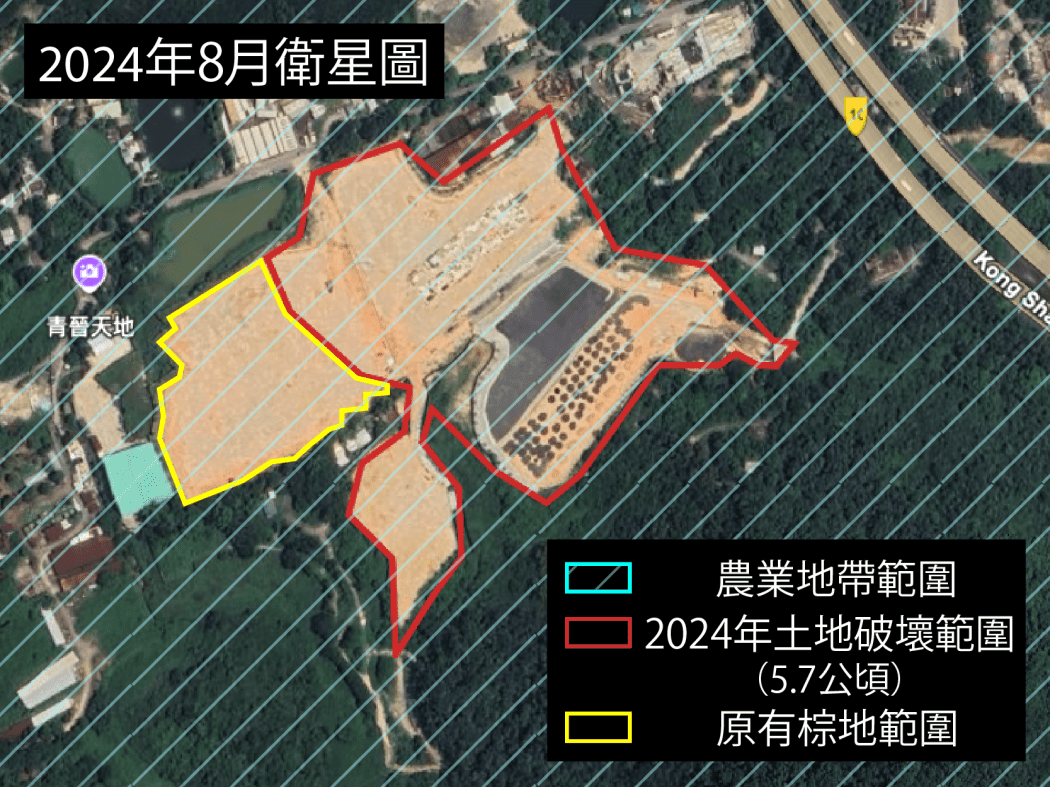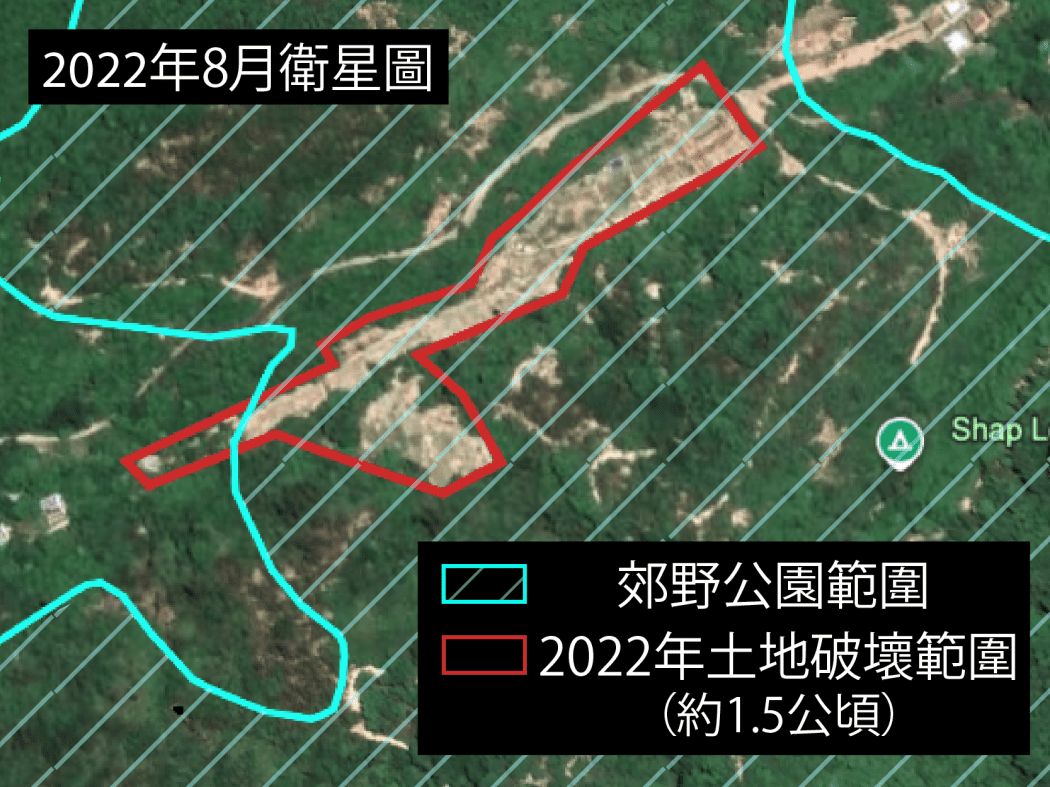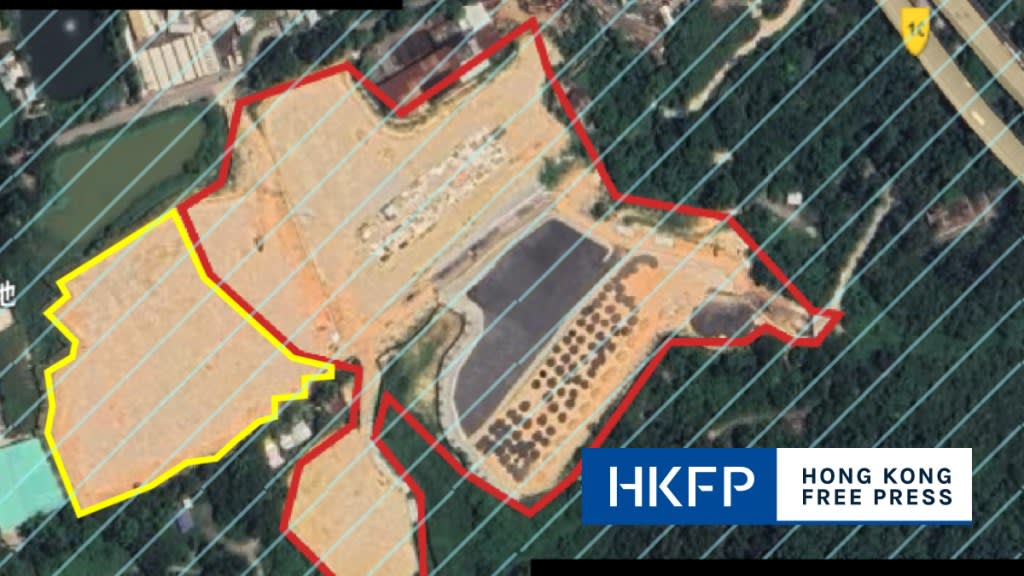Two Hong Kong NGOs have called on authorities to set a clear framework for eco-tourism development after discovering that existing arrangements may grant developers more flexibility to build private housing on ecologically sensitive land.

“The overall trend suggests that the government is prioritizing investment attraction and catering to developer demands, causing eco-tourism zones to increasingly deviate from their conservation purpose,” Greenpeace Hong Kong and policy think tank Liber Research Community said in a joint
report
published Monday.
Around 22.4 hectares of ecologically valuable land tapped for eco-tourism in South Lantau and three areas in the Northern Metropolis – Tsim Bei Tsui, Pak Nai, and Lau Fau Shan – have been degraded, the report said.
It recorded a total of 37 land degradation cases in South Lantau and the Northern Metropolis areas, including landfilling, unauthorised campsites, and brownfield operations, with some involving government-approved land applications.
Researchers also found that designated areas in Tsim Bei Tsui covered about 31 hectares – about 9.5 hectares more than stated in official documents. The NGOs said the discrepancy sparked suspicion as to whether it would provide flexibility for private residential developments.

“Especially as the Hong Kong government faces severe fiscal deficits, reliance on developer capital may similarly propel the government to incentivise developers, increasing their bargaining power, thereby easily distorting the original intent of eco-tourism,” the report said.
In April, the Development Bureau invited developers to
submit proposals for three eco-tourism sites
: a former quarry site on Lamma Island, Tsim Bei Tsui and Pak Nai in the Northern Metropolis, and four areas along South Lantau’s coastal area.
Greenpeace and Liber called on the government to set a comprehensive policy framework for eco-tourism projects and to ensure that conservation projects would not become property developments.
Brian Wong of Liber said: “If the Hong Kong government relies on developers to invest in eco-tourism areas under a fiscal deficit, it may easily cave in to developers’ demands and cause eco-tourism planning to deviate.”

Greenpeace and Liber urged the government to set three core principles: ecological conservation and low-impact development as top priorities, tourism experiences centred on in-depth environmental education, and revenue-sharing mechanisms that benefit local communities and conservation efforts, ensuring sustainability for both the environment and the community.
“A thorough understanding of biodiversity, habitat conditions, and the carrying capacity for tourism activities is needed, along with genuine consultations with local communities and ecological experts as prerequisites for eco-tourism planning,” the report read.
The NGOs also suggested that the authorities establish an interdepartmental eco-tourism committee to draft a policy framework and prevent “destruction first, development later” approaches.
The government should also define strict development limits to preserve the environment and create dedicated eco-tourism funds to ensure tourism revenue supports community development and conservation, Greenpeace and Liber said.
The joint report listed the Mandai Wildlife Reserve in Singapore, the Akamas Peninsula in Cyprus, and Guanacaste Province in Costa Rica as examples of eco-tourism projects that failed to uphold their original purpose.
Help safeguard press freedom & keep HKFP free for all readers by
supporting our team

Open the Youtube video
Open the Youtube video







